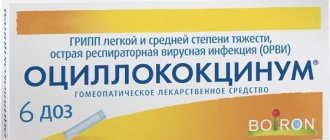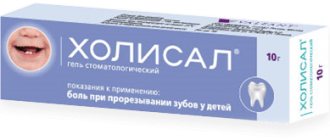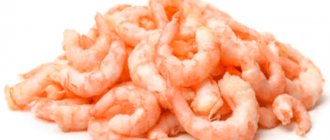Description of the drug
Despite the active production of analogue drugs by current manufacturers, Acyclovir 200 is in demand in medical practice.
Its popularity is due to its low toxicity, which is why the medicine is sold without prescriptions. The main substance of the drug of synthetic origin is acyclovir. Its antiviral structure is aimed at inhibiting viral DNA synthesis and suppressing the replication of viral particles that are not resistant to the components of the drug.
Genetic component - nucleic acids DNA, RNA with the inclusion of nitrogenous bases with an individual sequence.
Acyclovir auxiliary components:
- silicon dioxide,
- starch,
- lactose,
- calcium stearate,
- povidone.
Forms of release of Acyclovir:
- pills,
- powders,
- creams, ointments.
Based on the clinical picture of the disease, the doctor determines the most suitable form of the drug for each case. For herpetic lesions of the outer skin, cream and ointment are used. For a generalized form of the disease, tablets and injections are prescribed.
The therapeutic effect is based on the penetration of the active components of the drug into the cells affected by the virus. When activated, the components of the drug disrupt the cellular structure of the virus, stopping the process of its reproduction, stopping inflammatory processes in the source of infection.
It is well absorbed in the intestines, regardless of the presence of food particles in it. This suggests the possibility of using Acyclovir during meals. The active substances of Acyclovir 200 spread throughout the tissues, mucous membranes, and fluids of the body, overcoming biological obstacles. Cerebrospinal fluid contains a large number of active components of the drug.
When prescribing Acyclovir to children with liver dysfunction, its high metabolism in the liver structures should be taken into account. A small amount of the active substance is released with feces.
REFERENCE. It must be taken into account that with frequent outbreaks of herpes virus infection, it develops resistance to Acyclovir. This is caused by constant mutation of the causative agent of the disease.
Side effects
Usually the drug is well tolerated by the body of young patients.
But in very rare cases, the following side effects may occur:
- rash reactions;
- itching;
- feeling of nausea and vomiting;
- headache;
- feverish conditions;
- fatigue and weakness.
If a child experiences the effects described above, it is necessary to interrupt therapy and seek advice from your doctor.
Indications for prescribing the drug to children
Acyclovir can be used to relieve herpetic lesions in a child’s body, or for other forms of viral infection that are sensitive to the components of the drug.
The drug is indicated for children to take orally with the following disorders:
- herpes sore throat;
- chicken pox;
- as a prevention of herpes;
- weakened immune system;
- cytomegalovirus infection;
- Epstein-Barr virus;
- for the prevention of complications due to acute respiratory diseases, influenza, enterovirus infections.
Acyclovir tablets for herpes are not recommended for children under 2 years of age. In case of urgent need, children under one year old are recommended to take 3% ointment. With renal failure, use with caution according to strict medical instructions.
Possible side effects:
- lightheadedness
- vomit,
- loose stools,
- headache,
- impaired coordination of movements,
- weakness,
- skin rashes,
- intestinal pain,
- itching of the skin, peeling,
- mood swings (drowsiness, hyperactivity),
- convulsions,
- pathological changes in blood composition,
- the occurrence of hallucinogenic visions.
After taking Acyclovir, children may experience malaise, swelling of the skin, and impaired respiratory function.
IMPORTANT! If any side effects occur, you should immediately consult a doctor! Otherwise, you can cause irreparable harm to the health of the little patient!
Adverse reactions when taking Acyclovir in children under 2 years of age
Adverse reactions when taking Acyclovir in two-year-old children, as well as in adult patients, are quite rare. They mainly affect the nervous system and gastrointestinal tract:
- increased drowsiness;
- headaches of neurogenic origin;
- trembling of limbs;
- spasms;
- hallucinogenic states;
- lack of appetite;
- loose stools;
- deterioration of hepatoprotective functions of the liver.
In addition, a deterioration in the blood picture may be observed: a pathological decrease in the level of red and white blood cells, a change in the number of platelets.
Instructions for use for diseases
Here are general recommendations for the use of drugs in tablet form. Instructions for each medication are developed by the manufacturer. It can be modified in each individual preparation. It depends on the form of release, composition, active substance, additional components of the drug, and other factors. Prescriptions for taking medications are prescribed by the attending physician.
REFERENCE. It is preferable to give the medicine to children during or immediately after meals. A sufficient amount of liquid is required for washing down. The dosage is determined by the treating pediatrician and should be strictly adhered to.
Herpes virus, sore throat, stomatitis
For the treatment of herpes virus, herpetic sore throat, stomatitis, it is recommended to take Acyclovir 200 mg tablets. Children over 6 years of age are prescribed a daily dose of 800 mg in 4 doses. For children from 2 to 6 years old, a daily dose of 400 mg and 4 doses of the medication are recommended. The dosage is selected based on the height, weight, age of the baby, severity of the disease, by the attending physician. It is recommended for infants to grind the tablet into powder and give it in the form of syrup, mixing with water .
The duration of course therapy is 5 days. In acute forms of the disease, at the discretion of the doctor, the dosage is increased to five times a day. In addition to tablets, in order to reduce skin rashes, external use of Acyclovir 3% ointment is allowed. The presence of stomatitis does not imply the use of ointment inside the oral cavity. It is applicable on the outer skin around the lips.
Chicken pox
The dosage of Acyclovir for chickenpox from 2 to 6 years is 400 mg in 4 doses per day, at the age of 6 years and older - 800 mg in 4 doses. The course of taking the drug for chickenpox should be maintained for 5 days. Aciclovir should be taken within the first 24 hours after the onset of signs of the disease (rashes on the skin). If necessary, the tablet can be divided into parts. The main thing is to remember that you need to drink plenty of fluids so that the medicine reaches the gastrointestinal tract without dissolving prematurely.
ARVI
The official instructions for taking the drug do not contain information about its use for acute respiratory viral infections. Sometimes your doctor may prescribe medication to prevent cold complications. When the immune system is weakened, there is a risk of contracting the herpes virus. The dose of the drug in this case is prescribed by the pediatrician.
For young patients with kidney disease, medications for the treatment of viral diseases are prescribed with extreme caution.
Patients with frequent relapses of herpes infections are at risk of developing viral DNA resistance to the components of the drug. In this case, it is replaced by analogues.
Acyclovir ointment
The use of Acyclovir ointment allows you to get rid of herpetic eruptions of various etiologies. The dosage of the medicine is determined based on the child’s weight and the area of the affected skin.
In children whose age does not exceed two years, a single dose should be:
- no more than 80 mg per kilogram of weight;
- no more than 0.25 g per 25 sq. cm. area of skin.
The frequency of applications is every 4 hours, excluding night time, the full course of treatment is 7 days.
The ointment is carefully applied to the rash areas, without touching healthy skin. To achieve the fastest possible effect, it is advisable to start treatment from the first days of the disease.
Approved analogues of the drug
Many pharmaceutical medications used to treat viral diseases contain the active substance acyclovir. They have different release forms. The price depends on the manufacturer and the ingredients of the drug. The dosage and course of taking analogue drugs are calculated based on the amount of the active substance they contain.
The most common analogues:
- Zovirax,
- Verolex,
- Acivir,
- Vivorax,
- Acyclostad,
- Gerpevir.
In case of secondary herpes infection in a child, Acyclovir is still an effective drug. To prevent relapses, parents should take preventive measures to strengthen the child’s immune system. You should adhere to the vaccination calendar, vaccinating your baby on time, start treatment for colds in a timely manner, talk about the rules of personal hygiene, and encourage them to comply with them.
- Related Posts
- How to treat herpes virus in a child’s mouth: photos, symptoms, treatment
- Herpes on a child’s body: what are the causes, what are the symptoms and how to treat the virus
« Previous entry
Acyclovir tablets
Many doctors recommend prescribing the tableted drug Acyclovir to two-year-old children only in cases of severe herpetic lesions . These are acute conditions caused by infection with herpes simplex virus types 1 and 2, chickenpox, and herpes zoster. The drug is also prescribed as part of complex therapy when a child is infected with the human immunodeficiency virus.
Acyclovir tablets for a 2 year old child, according to the instructions, are prescribed as follows:
- For the treatment of manifestations of herpes simplex, a single dose is 0.5 tablets (100 mg). It is given to the baby 4 times a day for 5 days.
- For the treatment of other herpetic infections, a single dose is selected individually and is 20 mg of active substance per kilogram of weight, 4 times a day, for 5 days.
Injections of the drug Acyclovir
According to indications, the pediatrician prescribes Acyclovir to the child by injection. The medicine can be administered by infusion (through a dropper) or intramuscularly. Intravenous infusions must be continuous. The injection solution is made by dissolving the powder of the drug in water for injection. Glucose can be added to the resulting preparation.
The dosage of the drug in children older than 3 months is calculated based on body surface area.
During the treatment of the baby, the condition of his excretory system is monitored. If renal function deteriorates, treatment with Acyclovir is suspended until the doctor makes a decision to adjust the dosage or discontinue the drug.
Drug interactions
As stated in the instructions, Acyclovir 200 mg tablets in combination with external agents, such as ointments and creams, enhance their therapeutic effect. Also, recovery occurs much faster when taking Acyclovir simultaneously with drugs that stimulate the immune system, as well as vitamins.
The removal of the active component slows down somewhat when therapy is carried out simultaneously with agents to reduce the level of uric acid in the blood. It is not recommended to combine the drug with drugs that have nephrotoxic effects.











